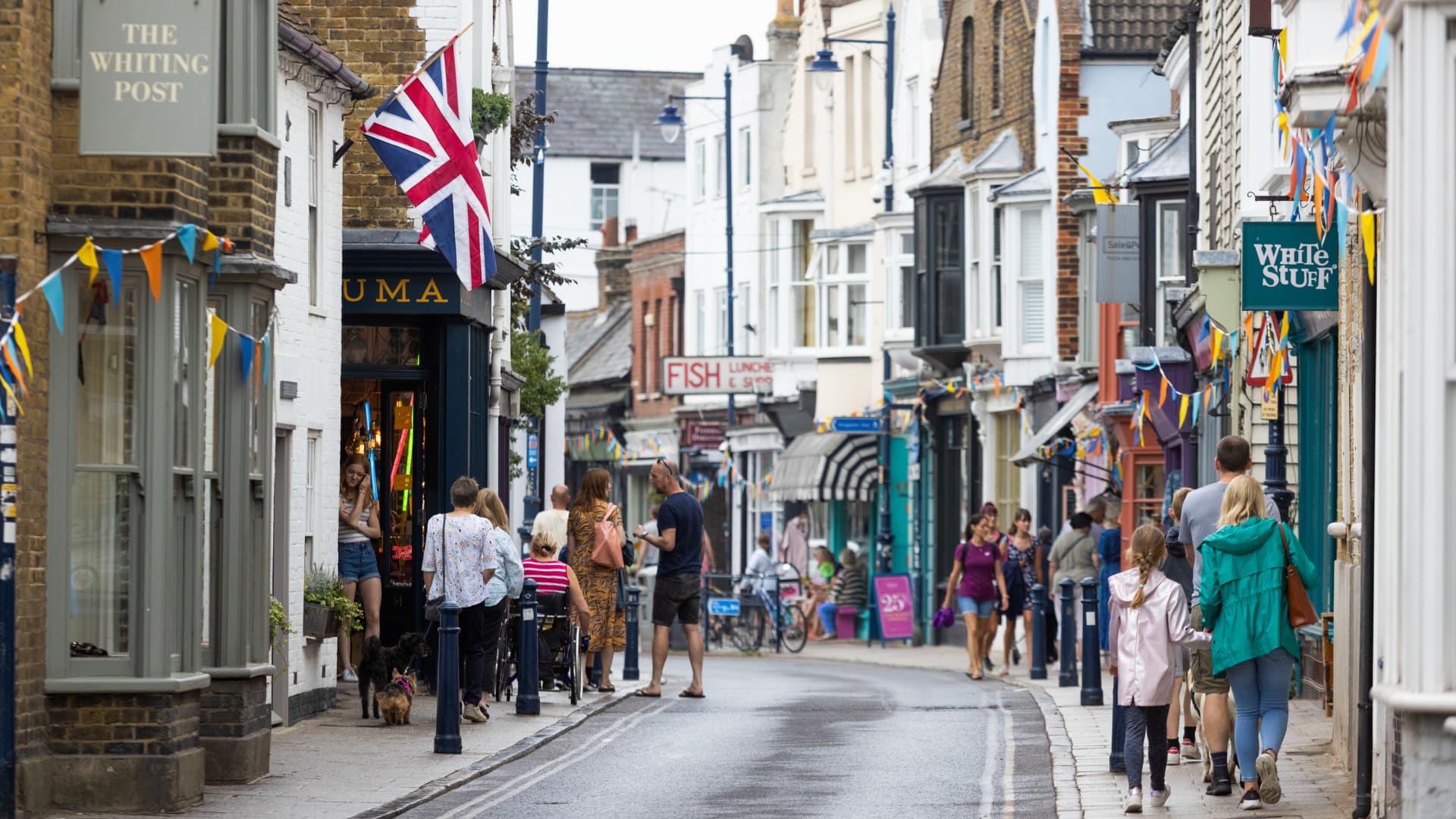Air fryers, blankets and warm clothes: Brits stock up ahead of tough winter

Shoppers pass along the main high street in Whitstable, UK.
Bloomberg | Bloomberg | Getty Images
LONDON — U.K. retail sales rose in September, data published Tuesday showed — but the details highlighted the multitude of challenges facing the public heading into the winter months.
The headline 2% year-on-year increase was largely due to higher prices, with the volume of sales declining, according to trade association the British Retail Consortium.
And consumers eschewed big purchases like computers, TVs and furniture, instead boosting sales of items like blankets, warm clothing and energy-efficient household appliances, such as air fryers.
“As consumer confidence continued to fall, people shopped cautiously,” said Helen Dickinson, chief executive of the BRC. “A difficult winter looms for both retailers and consumers.”
Energy crisis
With wholesale gas and electricity prices rocketing in Europe, the U.K. government in early September announced a cap on consumer energy bills and a £400 ($442) grant to each household over six months, with more for vulnerable groups.
However, the average household is still looking at a £2,500 annual bill for the next two years, up from £1,400 in October 2021.
Last week, Prime Minister Liz Truss said the U.K. would not run a public information campaign encouraging people to reduce energy use, as several other European countries have done.
It came as utility firm National Grid warned there could be planned three-hour power outages this winter if gas supplies do not meet demand, which it said was “unlikely.”
Dickinson said the retail sales data showed households were preparing themselves for the higher energy prices.
They also face broader price increases, with inflation at 9.9% and the most recent reading showing a significant rise in food prices. Rent and many mortgage payments, with the Bank of England hiking rates, are also on the up. Average pay adjusted for inflation is down 2.9% year on year, further squeezing consumer spending power.
A survey by consultancy GFK showed U.K. consumer confidence dropped to the lowest level since it began readings in 1974 for the fourth time in a row in September.
Paul Martin, U.K. head of retail at KPMG, said that heading into the holiday period, shoppers would be focused on getting value for money, likely switching to own-brand items and seeking out discounts; meaning retailers faced a “very fine line” in protecting their margins.
Economic turmoil
Dickinson also highlighted challenges for businesses, including cost increases throughout supply chains, the weak pound and a tight labor market driving up staff costs.
Figures also published Tuesday showed U.K. unemployment fell to 3.5% in the period from June to August, and the number of unemployed people per job vacancy was at a record low of 0.9.
The British Retail Consortium said the “relentless” tightness of the market was holding back businesses’ ability to service existing customers and grow.
Meanwhile, the pound has fallen dramatically against the U.S. dollar this year, increasing costs for importers.
A combination of relentless dollar strength due to global stock market volatility and weak U.K. economic forecasts have hit sterling, which has also declined against the euro.


